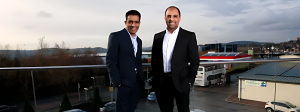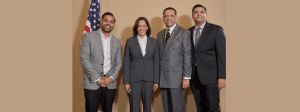(October 17, 2024) Tony Fernandes’ first lessons in salesmanship were when he was six years old. He began his career playing the piano for guests at sales parties hosted by his mother. A music-teacher turned entrepreneur, Eno Fernandes launched the Tupperware direct-marketing business in Malaysia. “She was a gregarious type, my mother could sell ice to an Eskimo, and so she had a phenomenal business,” said Fernandes, who went on to buy the ailing AirAsia and turn it into Asia’s top budget airline. “She had a way of making people feel like they needed what she was selling.”
Decades later, those early lessons in salesmanship and bold risk taking would come in handy for Fernandes, as he navigated the complexities of global business. Always the flamboyant salesman, Fernandes likes to stay over-the-top, from getting Richard Branson to work in the AirAsia airline crew for a day (the result of a bet Branson lost), to hand-delivering food to customers back in 2020, to mark the launch of his food delivery platform.
In 2001, Fernandes bought AirAsia, a failing airline, for just one ringgit. The deal came with two aircraft, and MYR40 million debt. In two years, Fernandes turned the ailing, Malaysian domestic carrier into Asia’s largest low-cost carrier. In 2023, Air Asia’s brand value was $1.3 billion. Captain Gopinath’s well-intentioned failure with Air Deccan should have been a cautionary blueprint, but Tony Fernandes wanted to persist, and to bring affordable flights to South Asia. Not only did he do that, the Global Indian went a step further, and expanded from short flights into a thriving, longhaul budget airline.
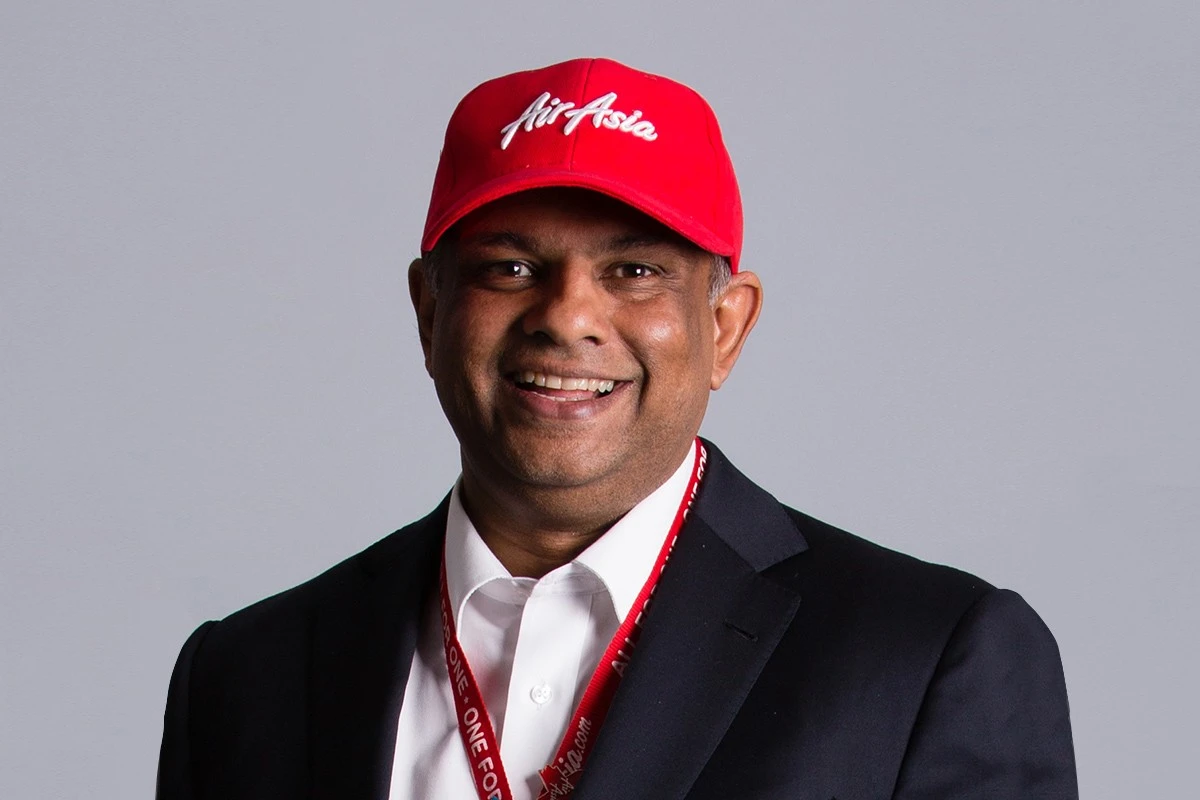
Tony Fernandes
Early life: Lessons from home and abroad
Tony Fernandes was born in 1964 in Kuala Lampur, to an Indian father and a half-Indian mother. His father was a physician, and wanted his son to be a doctor. However, he learned entrepreneurship, and the gift of the gab, from his mother, a former music teacher who found her groove as an entrepreneur. Eno brought Tupperware’s direct marketing model to Malaysia, and the Fernandes home was usually filled with the laughter and music of her marketing parties.
By the age of 6, the musically-talented Fernandes had been co-opted as the official pianist for his mother’s parties, where he would play Tupperware songs she had composed for the occasion. He would watch, open mouthed, as his mother delivered her pitches like a pro. “She had a way of making people feel like they needed what she was selling,” he recalled in an interview. “It wasn’t just about the product – it was about the connection she built with her customers.”
That’s not all. His mom was selling Tupperware nationwide, and young Tony would often go with her, giving him his first taste of commercial aviation. “I had a lot of happy times in airports. I told my parents that one day I wanted to own an airline,” he said.
To the UK
As his mother’s Tupperware business grew, Tony was sent off to the UK for a stint at private school. He was admitted to Epsom College in Surrey, where, by his own admission, he spent more time on sports than his schoolwork. His biggest lesson, however, came from trying to book a flight ticket back home for the semester holiday, and realizing it was prohibitively expensive. He compromised, and spent his holidays in London instead, usually in Heathrow, where he and his friends would spend time watching planes land. “Sir Freddy Laker had just launched Europe’s first no-frills carrier, Skytrain. I loved the Laker idea. I wanted to bring it to Asia.”
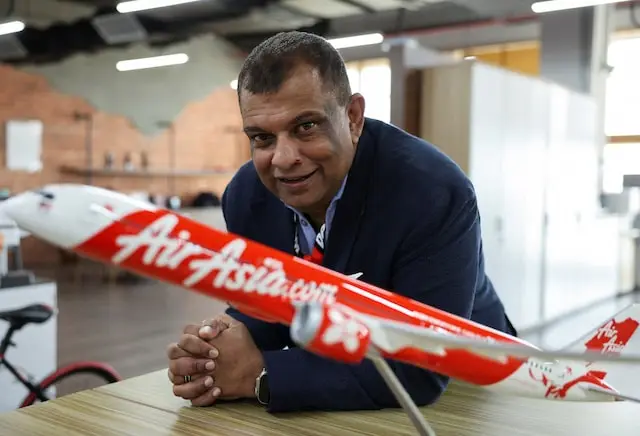
As fate would have it, that’s exactly what he would go on to do. At that time, however, there was no inkling of just how much Tony would take to the skies. Instead, he graduated from the London School of Economics and got his first job, asa financial controller at Richard Branson’s Virgin Group.
He moved up the ranks quickly, but soon became restless, and decided to answer to his other great passion – music. He joined Warner Music as a senior financial associate, and went on to become Vice President, ASEAN in 1999. This was the beginning of the internet, and Fernandes was disappointed to see that the music industry didn’t want to keep up with the times. “When the music industry failed to embrace the internet, I thought it was game, set and match for the industry and I quit,” he told the BBC later.
Taking to the skies
At the time, AirAsia, then a government-owned airline, was having a very tough time. In 2001, Tony Fernandes, finally cashing in on his childhood dream, swooped in and bought the ailing airline for a token sum of one ringitt. That token brought him two aircraft and MYR 40 million in debt. But Fernandes remained unmoved by skeptics. He was a businessman with a purpose, and that was to make air travel accessible to the common man, so that lonely young students don’t need to spend their university breaks by Heathrow Airport, simply watching planes and longing for home.
Practically speaking, the plan seemed doomed to fail, right from the start. But Tune Air officially took over AirAsia in December 2001, and one month later, the company was rebranded and ready to launch as a low-cost airline. It turned a profit by the end of its first year.
Under Fernandes’ leadership, AirAsia grew rapidly. By 2003, the airline was expanding into new markets, launching flights to Thailand and Indonesia. “We were opening up the skies for people who never thought they’d be able to afford to fly,” he said. The airline’s motto, “Now Everyone Can Fly,” became a reality.
In 2007, Fernandes launched AirAsia X, a long-haul low-cost carrier, expanding the airline’s reach to Australia, Japan, and beyond. “People said you couldn’t do long-haul budget flights,” Fernandes recalled, “but we proved them wrong.” Today, AirAsia flies to more than 165 destinations across Asia, Australia, and the Middle East, making it one of the largest low-cost airlines in the world.
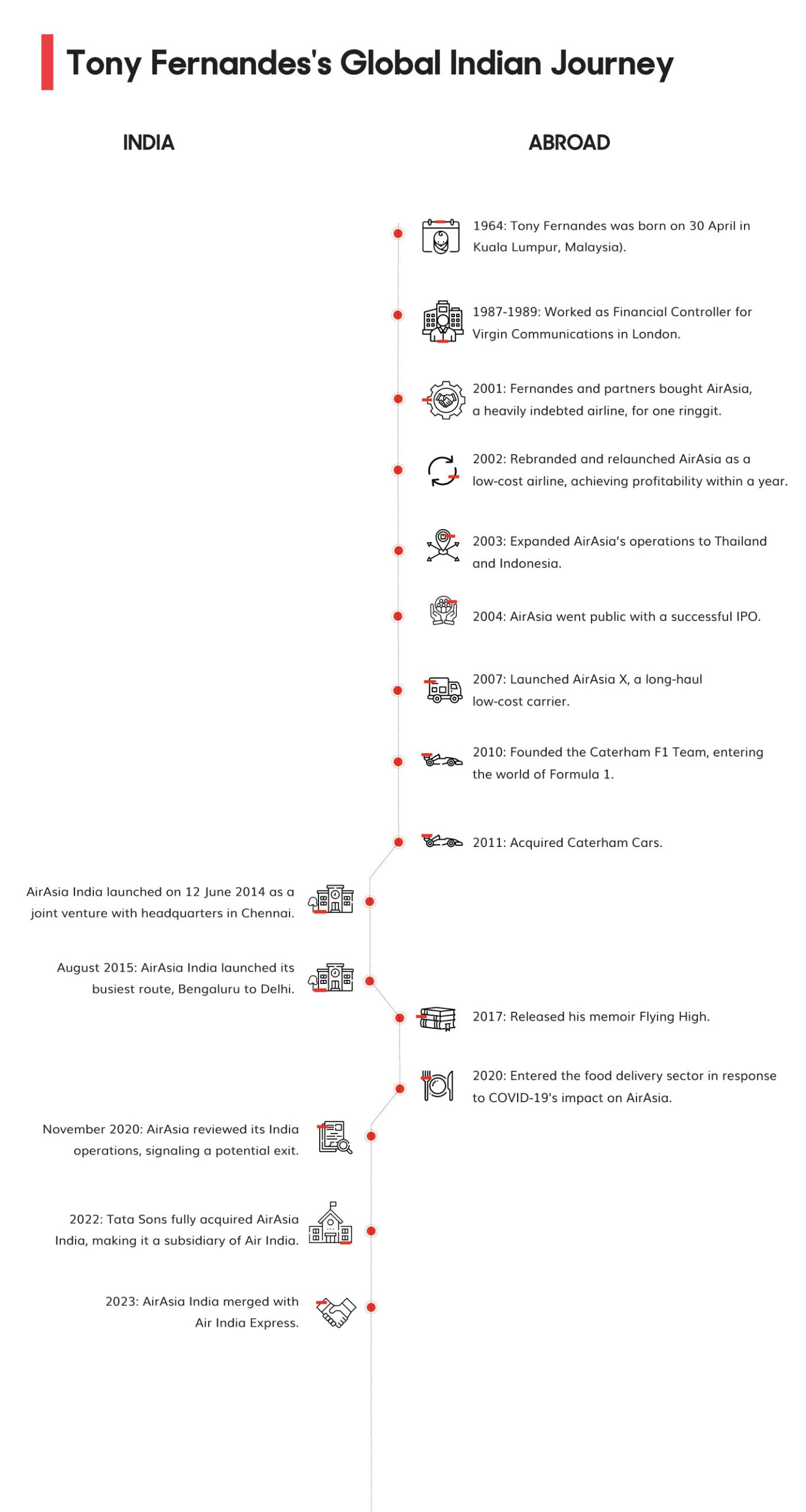
Expanding the empire
Fernandes didn’t stop at airlines. In 2010, he entered the world of motorsports by founding the Caterham F1 team. “It was a dream of mine to be involved in Formula 1,” Fernandes said. Though the team didn’t achieve great success on the track, Fernandes’ passion for the sport remained undiminished.
In 2011, he acquired Caterham Cars, a British manufacturer of lightweight sports cars. “I’ve always loved cars,” Fernandes said. “It’s one of my personal passions.” His other passion is football. In fact, he wanted so much to make a mark in English Premier League football that he became co-owner of the Queens Park Rangers, fulfilling a lifelong dream. “Football has always been close to my heart,” he said. “It’s about community, about bringing people together.”
And his ventures didn’t stop there. In response to the COVID-19 pandemic, Fernandes pivoted AirAsia’s business model to include food delivery, launching AirAsia’s food delivery service. “When air travel came to a standstill, we had to find new ways to keep going,” he said. “We saw an opportunity in food delivery, and we took it.”
‘Dream big’
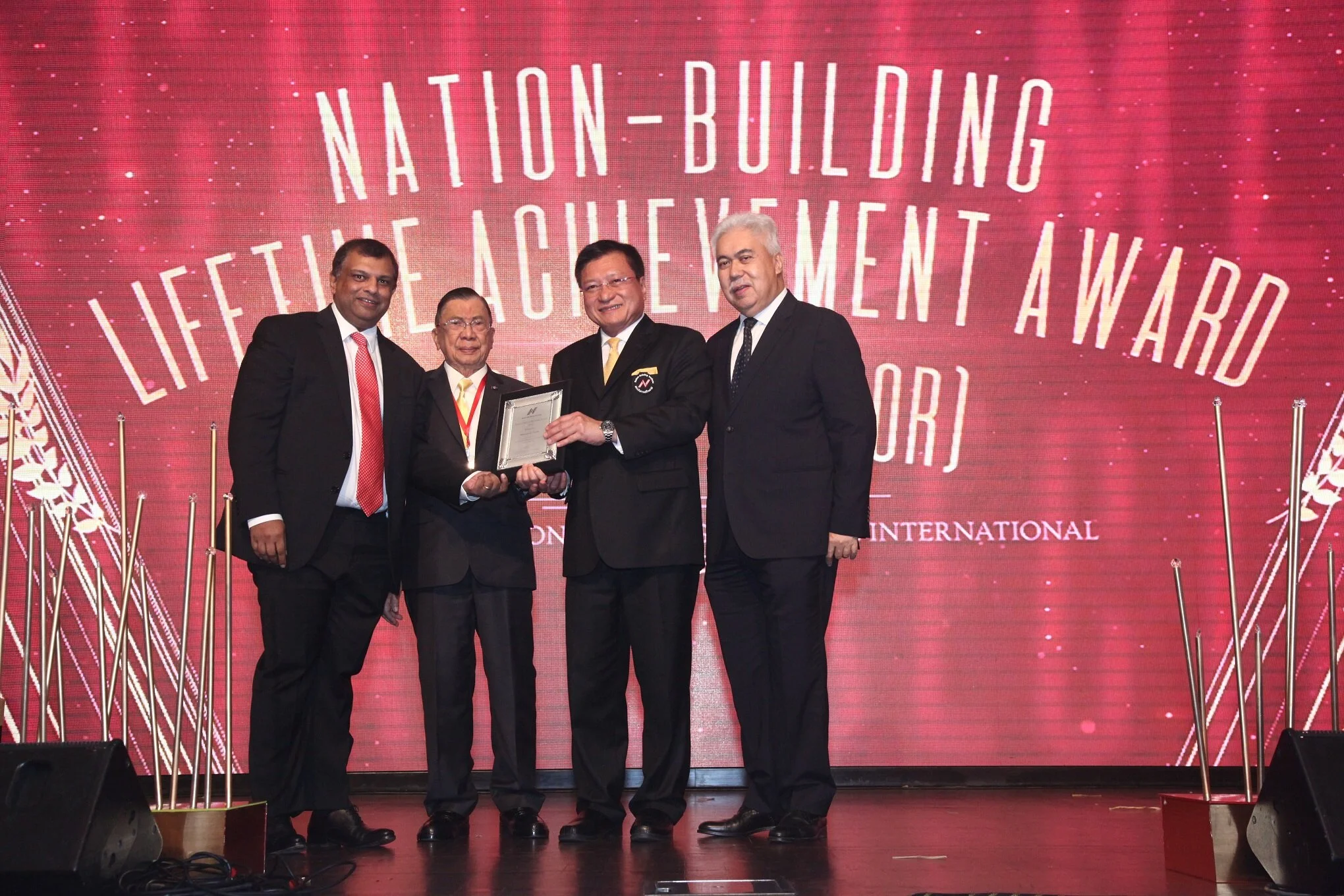
Tony Fernandes’ advice to the world: don’t be afraid to defy the odds, and don’t underestimate the power of networking. “If you don’t dream big, you’ll never know what you’re capable of,” he once said. Today, his influence spans industries and continents, but at the core of all his ventures is a simple philosophy: understanding people. “If you can connect with people,” Fernandes said, “everything else falls into place.”
Despite his global success, Fernandes remains deeply connected to his roots. He is a passionate advocate for Malaysia and regularly speaks about the importance of giving back to the community, and once said, “Success is meaningless if you’re not using it to help others.”
